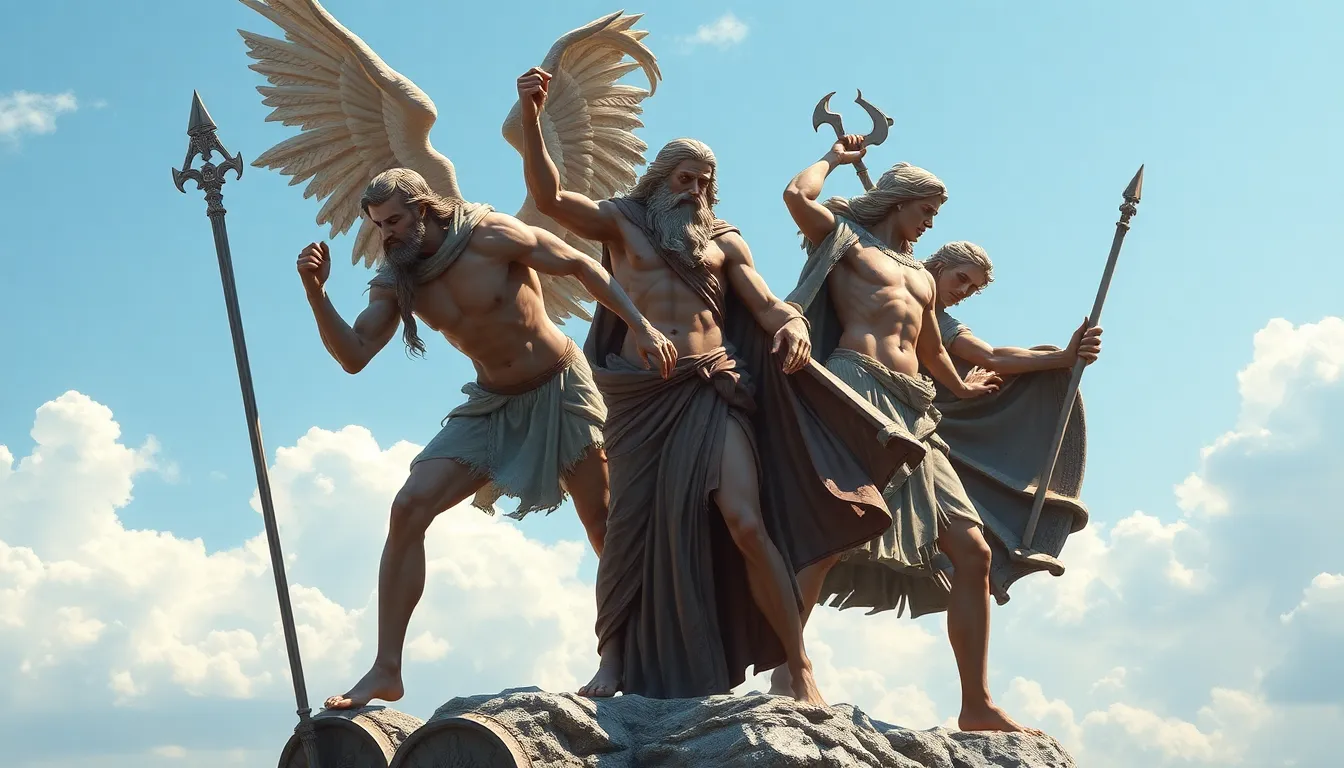Mythological Figures Who Escaped Divine Retribution
I. Introduction
In mythology, divine retribution refers to the punishment inflicted by deities upon mortals for their transgressions. This concept underscores the belief in a moral order governed by divine forces, where justice is meted out to those who defy the will of the gods. However, the narratives of certain mythological figures reveal intriguing tales of evasion, where individuals manage to escape the clutches of punishment despite their misdeeds.
This article delves into the stories of various mythological figures across cultures who have evaded divine retribution. By examining their tales, we can gain insights into the complexities of justice, morality, and the human experience as reflected in mythological narratives.
II. The Concept of Divine Retribution
Divine laws in mythology often reflect the moral expectations of society. Many cultures have established narratives that emphasize justice and the consequences of wrongdoing. Common themes in these stories include:
- Transgression against the gods
- Hubris and its consequences
- The balance of good and evil
Numerous figures in mythology have faced retribution for their actions, such as Narcissus, who was punished for his vanity, or the Titans, who were overthrown for their rebellion against Zeus. However, some figures, through cunning or sheer luck, managed to evade punishment, leading to compelling narratives that question the nature of justice.
III. Prometheus: The Titan of Forethought
Prometheus, a Titan in Greek mythology, is renowned for his defiance against Zeus. He famously stole fire from the gods and gifted it to humanity, an act that symbolized the dawn of civilization. In response to Prometheus’s rebellion, Zeus condemned him to eternal punishment.
Prometheus was bound to a rock, where an eagle would eat his liver every day, only for it to regenerate each night. Despite his severe punishment, Prometheus managed to escape complete destruction through his enduring spirit and eventual rescue by Heracles. This act of liberation underscores the theme of resilience and the possibility of redemption, even in the face of overwhelming divine wrath.
IV. Loki: The Trickster God
In Norse mythology, Loki stands out as a complex figure known for his trickery and deceit. He played a crucial role in many events, including the death of the beloved god Balder. Loki’s misdeeds, however, did not go unpunished. After orchestrating Balder’s death, he was captured by the gods and subjected to brutal punishment.
Loki was bound with the entrails of his own son, and a serpent was positioned above him to drip venom onto his face. Despite this severe punishment, Loki’s eventual escape during Ragnarök, the end of the world in Norse myth, highlights his cunning nature. He embodies the theme of transformation and chaos, making him a figure who evades ultimate retribution through the very nature of his being.
V. Odysseus: The Cunning Hero
Odysseus, the hero of Homer’s “The Odyssey,” is celebrated for his intelligence and resourcefulness, particularly during the Trojan War and his subsequent journey home. His clever strategies, such as the ruse of the Trojan Horse, exemplify his ability to navigate perilous situations.
Throughout his journey, Odysseus faced numerous challenges, including divine wrath from Poseidon. Yet, his wit and cunning often allowed him to turn the tide in his favor. For instance, he cleverly outsmarted the Cyclops Polyphemus, blinding him and escaping with his men. Odysseus’s ability to evade punishment reflects the theme of intelligence as a means of survival against divine forces.
VI. Medusa: The Cursed Gorgon
Medusa, once a beautiful maiden, was transformed into a Gorgon as a punishment from Athena for being violated by Poseidon in her temple. This transformation turned her into a creature so terrifying that her gaze could petrify anyone who looked at her.
While Medusa’s story is often viewed through a lens of tragedy and punishment, it can also be interpreted as an escape from her previous life. Her legacy endures beyond her punishment, as she becomes a symbol of empowerment and resilience, inspiring various interpretations in art and culture. Medusa’s ability to elicit fear and reverence from others suggests a complex relationship with divine retribution, revealing how punishment can lead to a form of escape through transformation.
VII. Other Figures Across Mythologies
Beyond the well-known figures of Prometheus, Loki, Odysseus, and Medusa, there are numerous lesser-known figures in various mythologies who have also escaped divine retribution. Here are a few examples:
- Gilgamesh: In Mesopotamian mythology, Gilgamesh defies the gods but ultimately seeks redemption rather than facing their wrath.
- Hercules: Despite his moments of folly, Hercules often finds favor with the gods, allowing him to evade dire consequences.
- Ishtar: In Babylonian mythology, Ishtar’s defiance leads to conflict, yet her cunning allows her to navigate and survive the repercussions.
These figures illustrate how different cultures perceive justice and retribution, suggesting a shared human experience in grappling with moral dilemmas. The implications of these escapes resonate with cultural beliefs about fate, free will, and the nature of divine authority.
VIII. Conclusion
This exploration of mythological figures who escaped divine retribution reveals a rich tapestry of narratives that reflect the complexities of justice and morality. From Prometheus’s defiance to Odysseus’s cunning and Medusa’s tragic transformation, each story offers unique insights into human behavior and the consequences of our actions.
These narratives encourage reflection on the nature of justice, suggesting that the line between punishment and mercy can often blur. Ultimately, the significance of these stories lies in their ability to illuminate the enduring themes of resilience, cunning, and the human condition, making them relevant across cultures and epochs.




